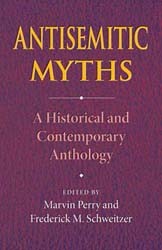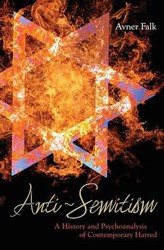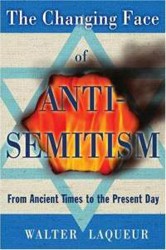In this rich and provocative book, Daniel Jonah Goldhagen examines the worldwide resurgence of anti-Semitism in the twenty-first century. Its reach is unparalleled, both historically and today and hundreds of millions of people have been exposed to it, especially in the internet and satellite television age. It is practically an article of faith in much of the Arab and Islamic worlds which subscribes to the foundational anti-Semitic paradigm that holds Jews to be essentially different from non-Jews and dangerous. But it also exists in subdued forms among Christians. The range of people spreading and believing in anti-Semitism is unusually broad. From common “folk” to university professors and political leaders, from people on the political right to those on the left, from the secular to the devout believers in God — all sectors of society have been moved by its associated passions, including hatred and violence. One of the most effective and disturbing arguments Goldhagen musters is that the resurgence of anti-Semitism over the past decade or so is shocking because it does not seem to shock. The horrific calumnies leveled against Jews in the Middle East, Europe, and Africa seem to be accepted without challenge by the masses, opinion makers and elites alike. This has a self-reinforcing dynamic of persuading more and more people of anti-Semitism’s claims.
Goldhagen makes a strong case for anti-Semitism’s unique and enduring character. It has the ability to change and mutate over time, rendering it continuous with earlier forms and yet substantially new. It is more dangerous than at any time since the Holocaust, threatening politically and physically Jewish communities around the world, including Israel’s very existence. He is particularly cogent in his nuanced treatment of the issue of criticism of Israel and when it slides into anti-Semitism. He exposes the historical and intellectual weaknesses of comparisons of Israel to Nazi Germany and the hypocrisy of academics and leaders who judge Israel by different standards.
This is an important book providing a comprehensive catalogue of “globalized anti-Semitism.” Unfortunately, however, the book is long on denouncing and short on evaluating. His criticism of other religions, particularly Islam, is excessive and borders on the conspiratorial. The fact that much of his research comes from the web and public opinion surveys makes his book less appealing than the more scholarly approaches to anti-Semitism offered in recent works by David Nirenberg, Anthony Julius, Alvin Rosenfeld, and Robert Wistrich. The writing is often dense and repetitive and the tone is occasionally shrill and hectoring, with some of his points bordering on hyperbole — yet the message is compelling and important. Anti-Semitism is back and we need to be concerned.




